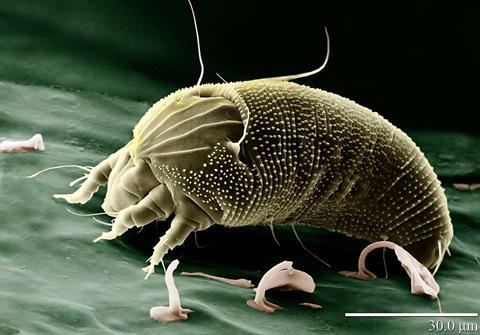High incidence of the pest causing quality issues, leading to a sharp drop in weekly shipments

An invasive parasite is hampering banana exports from the Dominican Republic. The banana rust mite, (Eriophyidae), which was observed for the first time in the Caribbean in 2020, causes brown stripes to appear on leaves and lesions on the skin of the fruit.
According to Hilario Pellegrini, president of the Dominican Association of Banana Producers (Adobanano), last year’s high temperatures caused a proliferation of the mite that farmers – already heavily indebted following a series of hurricanes and falling prices – have been unable to treat due to not being able to afford the necessary products.
Speaking to Dominican economic news service elDinero, he said: “By July 2023, we started to have problems with the quality of the fruit, in this case, over-ripening, and the farms began to lose productivity”.
Pellegrini warned that the quality issues is affecting the price the fruit fetches on the international market and leading some customers to look for alternative sources. He said weekly shipments have fallen from an average of 450 in 2021 to 260, further eroding even farmer incomes.
In the past five years, the country, which once supplied over half of the world’s organic bananas according to the United Nations Food and Agriculture Organisation, has seen its market share decline significantly.
In December, the government gave Adobanano a grant of more than US$2m to aid the recovery and development of the sector. Part of this will be allocated to purchases of inputs and fertilisers through the Northwest Regional Office of this Ministry to fight against the pest.



